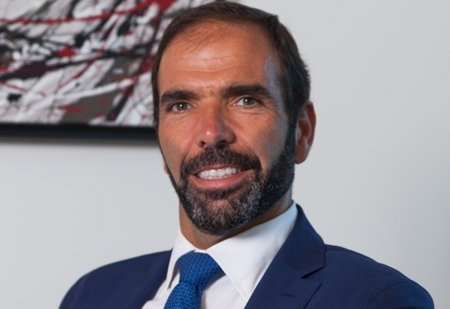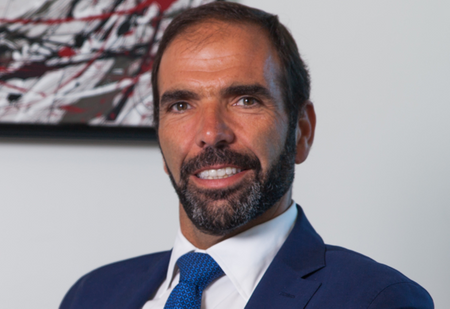Growth spurt

Portuguese law firm Antas da Cunha Ecija has gone through a period of dramatic expansion in recent years – managing partner Fernando Antas da Cunha says that, despite a recent merger, maintaining a large amount of independence has been key to the firm’s success
 Antas da Cunha-Ecija is one of the fastestgrowing law firms in Portugal. In terms of headcount, the firm is now seven times the size it was when it was established four years ago. After its launch, it quickly forged a reputation for dynamism that caught the eye of Spanish suitors, which culminated in the firm founded by Fernando Antas da Cunha merging with Ecija two years ago. Since then, the firm has gained even more momentum and, earlier this year, the Lisbon-headquartered firm announced the opening of an office in Oporto. We spoke to Fernando Antas Da Cunha to find out why the firm had grown so quickly, what lessons it had learnt from the merger and what the future holds.
Antas da Cunha-Ecija is one of the fastestgrowing law firms in Portugal. In terms of headcount, the firm is now seven times the size it was when it was established four years ago. After its launch, it quickly forged a reputation for dynamism that caught the eye of Spanish suitors, which culminated in the firm founded by Fernando Antas da Cunha merging with Ecija two years ago. Since then, the firm has gained even more momentum and, earlier this year, the Lisbon-headquartered firm announced the opening of an office in Oporto. We spoke to Fernando Antas Da Cunha to find out why the firm had grown so quickly, what lessons it had learnt from the merger and what the future holds.
What have been the drivers of growth at the firm in recent years?
We started almost four years ago, in July 2015, and we have registered growth of more than 30 per cent per year. We started with only seven people and today we are 52. The reason for this growth is that, from the beginning, we focused on building a strategy that clearly distinguished us from our competitors. We started by investing in an area that, for us, is historical and natural, which is private clients. However, one of our key characteristics is our flexibility. We are always able to adapt to meet new challenges. We realised that the growth of digital law was inevitable, so we adopted a business plan focused on this area as a pillar of growth.
How has the firm changed since the merger with Ecija?
There have been a number of changes and there will be more to come. Thanks to Ecija we have learned a lot and I believe we have contributed positively with our experience in more traditional areas. We share and develop management mechanisms for the group as a whole. We (the Portuguese team) are also involved in developing the group’s overall growth strategy.
What are the most complicated aspects of a merger between firms?
Because of our model, we did not have excessive complications. We continue to be an independent firm in which there is absolute respect for our partners. We are in permanent contact, we share projects, but no procedures were imposed. In fact, we have absolute autonomy in the management of our office on a day to day basis. In what new areas has the firm focused since the merger? We are working in areas of digital law linked to new technologies. We have created the TMT/privacy and cybersecurity practice and the fintech & financial regulation practice.
Do you think the firm will grow even more in the coming years? If so, why?
We continue to grow substantially above our expectations and we expect growth to continue in the coming years. The reputation of the firm is also growing and, thanks to this, our ability to attract talent has increased. We believe that this, together with our strategic plan, will result in significant growth. What advice would you give to firms that are considering a merger? Taking into account our experience, I would certainly advise not renouncing your autonomy and independence. You cannot give up work in favour of a common culture. Maintaining the objectives of each office, the culture of both organisations and the empathy between teams are fundamental elements of a successful merger.
To read the article in full please download issue N.85 here












